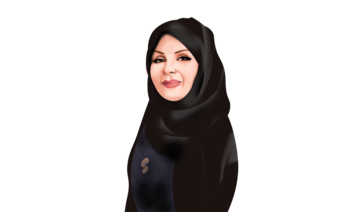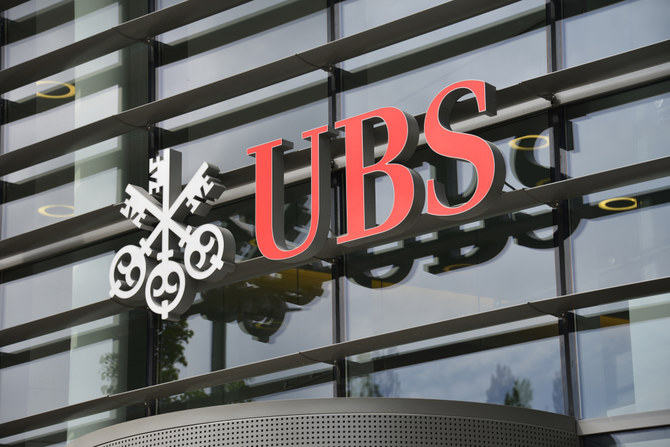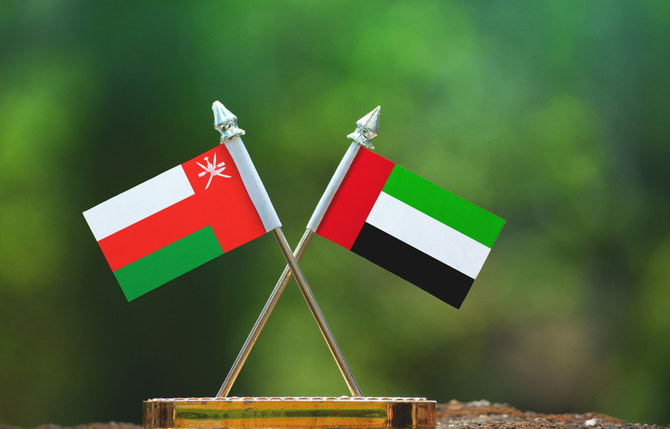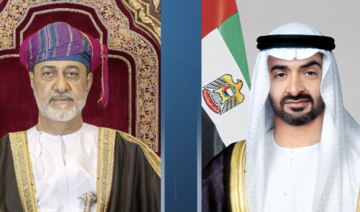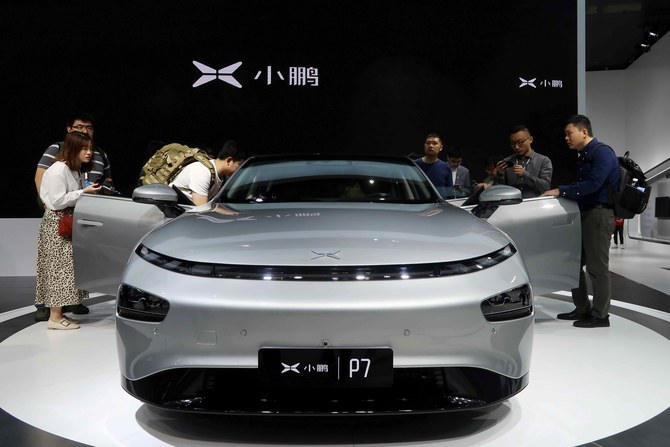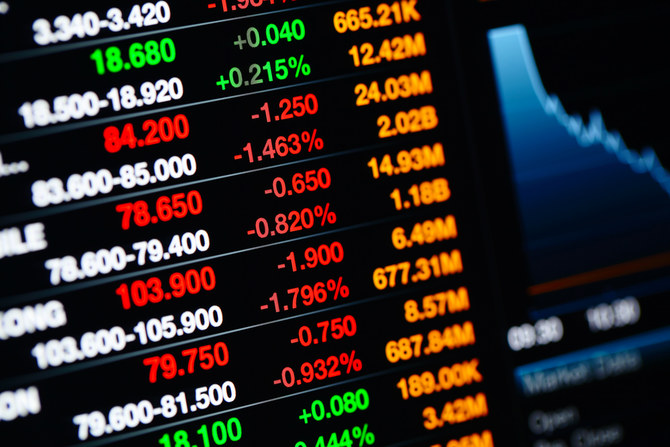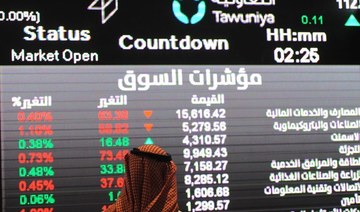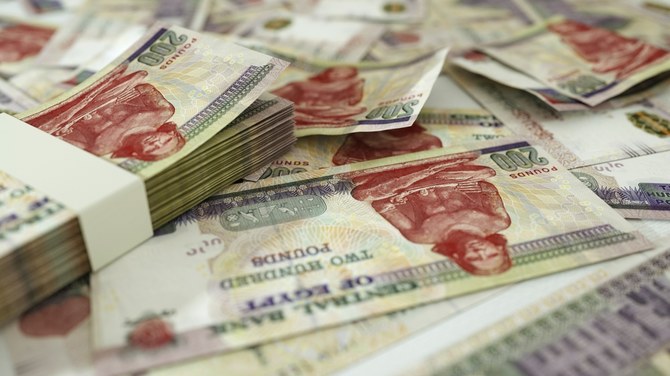Giorgio Turri is a man of passion. He uses the word a lot to describe his role as general manager for the Middle East of the famous Italian car maker Ferrari, both for the head-turning vehicles he sells in the region and for the people who buy them in increasingly big numbers in Saudi Arabia.
“It’s interesting to see the evolution, from a cultural perspective, going on in Saudi Arabia, and we have a lot of passionate clients there. They love Ferrari, they love to ‘spec’ their cars according to their taste and expectations, and they really love the brand,” he told Arab News last week.
It has been a busy few days for Turri and for Ferrari in the Middle East. He launched the Club Challenge, a service to get Ferrari owners behind the wheels of some real racing cars on fast tracks across the region; the following day New York-listed Ferrari had announced financial figures for 2019, showing a big sales jump across the world, notably in the Arabian Gulf region; and then he had unveiled the new super car, the Roma, for the first time outside Europe.
“On a global and regional perspective, I have to say it has never been so good before. We are closing an amazing year,” said Turri, who was born up the road from the Ferrari global HQ in Maranello, Italy. You could say that passion is in his blood.
The luxury car business in the region has always been good, outselling most other regions in proportion to its population size. Arabs love fast, high-spec cars, and the historic abundance of cheap fuel has driven a search for the perfect mix of style with performance. Ferrari, whose famous Prancing Horse badge has been in the region for 26 years, has led the field against strong competition in the up-market speedster stakes.
“Ferrari is about performance, luxury, client engagement, technology. It is about all that,” said Turri. The “Passione Ferrari” Club Challenge he launched in the Middle East — the only venue so far outside Europe — encapsulates all those values, offering Ferrari owners, in return for around $100,000 per year, the chance to drive full-performance racing cars on some of the best-known tracks in the region — in Dubai, Abu Dhabi, Bahrain and Muscat.
“There is a world of owners who like very much to enjoy their own cars on the road, and there is another set of owners who want to be involved in racing events and competitions,” Turri explained.
BIO
BORN: Parma, Italy 1978
EDUCATION: University of Parma, Economics
CAREER
- Product manager, Maserati
- Marketing and communications manager, Olimpia Splendid
- Global trade marketing manager, Technogym
- General manager, Ferrari Middle East
Saudi Arabia will join that list of high-speed venues when the track at the Al Qidiyya resort near Riyadh is completed, which is expected to be the biggest track in the world, some time in the next 18 months. Turri expects an eager challenge take-up by Saudi drivers, who were heavily involved in the Ferrari motorsport festival that coincided with Riyadh season last year.
“We have a really amazing Ferrari owners club there. They drive in the Kingdom a lot, and even come over to the UAE and Bahrain, and to Italy when we have an event there. They are quite passionate and it is good to see this kind of passion in Saudi Arabia,” he said.
The changes under way in the Kingdom with the relaxation of conservative rules on leisure and entertainment is also a positive factor for Ferrari.
“What we can see is that there is a different atmosphere and you can feel the good vibrations there. People are ready to have fun and to enjoy their own country, and what their own country can offer.
“These good vibrations and atmosphere are also reflected in consumer behavior and expectations. Buying a Ferrari is a moment of reward, a moment of pure enjoyment, and if the mood and the surrounding atmosphere is positive it can only be better for us,” he added.
The Middle East was a stand-out element in the one of the other big events for Ferrari last week — the announcement of financial results for the 2019 year. Ferrari sold more than 10,000 cars for the first time in its history, producing revenues of €3.76bn ($4bn), 10 per cent up on the year. Adjusted net income rose 8 per cent to €699m.
Ferrari launched five new models in 2019. “We can work on serving our clients with a strong portfolio of potential orders, and that way we can plan how the business will evolve. Today, we have a very good portfolio and every confidence our plans can be sustained,” he said.
Among the best-sellers was the eye-catching F8 Tributo, a classic two-seater sports car in the Ferrari tradition which some experts called the most powerful V8 road car ever made.
Ferrari shares were listed in New York in 2015, but initial public offerings (IPOs) in the luxury car world have not always been a recipe for success, as British car maker Aston Martin has found. How can an up-market car maker, with all the capital-intensive investment needed for research and development and technology in new models, overcome the swings of the sales cycle?
“You will appreciate the fact that we are still a relatively small volume manufacturer, and our volumes are kept under control. Our model is based on one simple statement — delivering to the market something less than what the market demands. We have the pleasure to launch a lot of new models and there is always a lot of demand, but we would like our clients to appreciate the fact that it takes time to receive a Ferrari,” Turri said.
“So I would say it’s a beautiful moment for Ferrari and the market is responding very well to us. In general the luxury market is doing well, but specifically our segment, which is luxury sports cars.”
Customers seem happy to wait as long as a year or more to receive their new car, and to spend that time in consultation with Ferrari designers in the lucrative process of customizing their purchase.
“Personalization is an important part of what we do, as our Middle East clients always demand the best and are genuinely interested in one-off creations that are tailored minutely to their individual desires and tastes,” Turri said.
Ferrari customers — who will spend a minimum of 800,000 dirhams in the Dubai showroom on, for example, the Portofino luxury tourer — will not scrimp when it comes to splashing out of luxury additions. “There’s no ceiling when it comes to the most expensive car, it all depends on the model and what the requirements of our discerning clientele are,” he explained.
He hopes the next big seller in the Middle East will be the Roma, unveiled with much Italian pizzazz at a ceremony for Ferrari enthusiasts. Launched under the banner “La Nuova Dolce Vita” — the new sweet life — the car is a classic mixture of Italian style and Ferrari power. The early order book was “impressive,” Turri said.
The big trend in the luxury car market in recent years has been the move by all manufacturers to develop and sell SUVs, which are especially in demand in the Middle East. Ferrari — not famous for family-oriented cars in the past — has bided its time, but is now planning the Purosangue (Italian for “thoroughbred”) to challenge in this segment. Turri is not prepared to share many secrets about the new marque, expected to hit the market in 2022.
“We don’t use the word SUV because it’s not what we have in mind. Ferrari is different and the concept we have in mind will be an expression of the essence of Ferrari, combining the performance and the fun to drive with a higher level of versatility,” he said.
The other thing very much on the minds of the strategic planers in Maranello is the need to make the fast car industry more acceptable in the era of increased environmental awareness. Last year Ferrari unveiled its first hybrid electric-petrol car, the SF90 Stradale, and there will be further refinements of this concept.
“We are exploring all the different technologies that can help us be compliant with the future constraints on the environment, but with a clear philosophy in our mind: we would like to use the tech in a way that can improve the performance and the fun-to-drive factor, not only help to be compliant with the constraints and regulations.
“It is our duty to be compliant of course, but it is also our duty to the clients to keep improving the performance,” Turri said. And, of course, raising the passion level.





